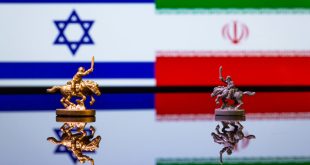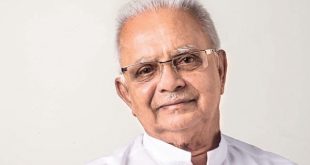They met and they talked — no they barked. The much-hyped Indo-Pakistan talks at Foreign Secretaries level last week, we were told, ended on a note of optimism.
Indian Foreign Minister S.M. Krishna described the talks as an “encouraging step towards restoring dialogue” while Pakistan Foreign Secretary Salman Bashir said the talks were exploratory.
But soon the atmosphere changed, with the two foreign secretaries addressing two different media conferences, indicating that the talks had not achieved much by way of improving ties which have been severely strained since the November 26, 2008 Mumbai terror attacks. In fact, the talks, the first since the Mumbai attacks, had ended in acrimony.
Such an outcome came as no surprise, given the ground realities that exist today.
In the past, too, even head-of-state level talks had ended abruptly. In 2001 Pakistani President Pervez Musharraf went to India for talks. He met Prime Minister Atal Behari Vajpayee and attended the first round of talks. But he left India in a huff without attending the second round because Vajpayee refused to include Kashmir in a joint communiqué.
The two sides have been meeting and talking over their problems for the past 63 years and it is a crying shame that they have failed to solve their problems peacefully. Even war, which they tried more than thrice, has not solved their problems which range from Kashmir and sharing of river waters to terrorism. Given the animosity between the two countries, the mistrust they entertain and attempts to destabilise each other’s territory, they are unlikely to solve the problems in the foreseeable future.
Since partition in 1947, relations between the two countries have seen many ups and downs. There were times when the two countries acted realistically and came close to solving their problems.

The Tashkent summit between Indian Prime Minister Lal Bahadur Shastri and Pakistani President Ayub Khan in 1965, the 1972 Simla agreement between Indira Gandhi and Zulfikhar Ali Bhutto, the pacts agreed upon by Rajiv Gandhi and Benazir Bhutto, the talks between Nawaz Sharif and Atal Behari Vajpayee that led to a bus service between New Delhi and Lahore, and the behind-the-scene talks initiated by Pervaiz Musharraf and Manmohan Singh have time and again stirred hopes of peace between South Asia’s nuclear rivals. But each time, they take one step towards each other, an incident or disagreement occurs, pushing the two sides several steps back. The pattern gives rise to suspicion that these incidents were deliberately let loose by one side or the other or even by a total outsider.
These suspicions apart, India and Pakistan cannot afford to continue the animosity because it has adversely impacted not only on the people of the two countries but also on the whole of South Asia. It goes without saying that the South Asian Association of Regional Cooperation has failed to achieve many of its goals such as alleviating poverty and improving trade among member-states largely because of Indo-Pakistan disputes. At daggers drawn, the two countries continue to trade barbs, affecting even sporting ties. The spirit of give-and-take or forgive-and-forget is yet to be discovered by the two countries in improving relations between them.
After last week’s botched talks, India’s Foreign Secretary Nirupama Rao told the media she believed dialogue held tremendous potential but progress had been repeatedly thwarted by acts of terrorism. She said India wanted the talks to go ahead though it knew that there existed a huge trust deficit between the two countries.
At the talks, Rao, quite undiplomatically, presented three dossiers containing names of those whom India regards as terrorist elements and told her counterpart Bashir that his country should track them down and hand them over to India to face justice.
Pakistan did not take kindly to her words. In fact Bashir was furious.
Addressing a separate media conference at Pakistan High Commission in New Delhi, Bashir said he came to India with the hope of resuming the composite dialogue which included almost all thorny issues troubling the two countries, but he said all what he heard was Rao’s “sermon on terrorism”.
He said Pakistan also had evidence that India was supplying arms and funds to militant groups for “activities prejudicial to Pakistan’s security”.
Pointing out that Pakistan was one of the countries that had suffered the most on account of terrorism, with 5,000 civilian deaths in the past few years, Bashir said, “We have suffered hundreds of Mumbais… We don’t like to be sermoned on the issue of terrorism, we know what it means.”
 “Pakistan does not believe that India can just lecture us. We are not desperate. If India decides to take more time to reflect on the modalities of engagement with Pakistan they will find us ready, but it is for India to decide. To create the optics of dialogue without the substance means we’re not taking the relationship seriously,” he said.
“Pakistan does not believe that India can just lecture us. We are not desperate. If India decides to take more time to reflect on the modalities of engagement with Pakistan they will find us ready, but it is for India to decide. To create the optics of dialogue without the substance means we’re not taking the relationship seriously,” he said.
The Pakistani media were no less critical. “Delhi double talk derails dialogue,” one headline said, while another headline described the meeting as “Meaningless talks end in meaningless way.”
These post-talk charges show that last week’s foreign-secretary-level discussions were held for the sake of holding talks and that little preparation had gone into them. Among those who held such a view was India’s opposition leader Lal Krishna Advani. He asked Prime Minister Manmohan Singh on Wednesday in parliament whether the talks were held because of pressure from United States President Barack Obama.
The US president is keen to achieve at least a temporary thaw in relations between India and Pakistan because he believes if that happens he can get the Pakistan Army to deploy its full force in the fight against Taliban militants in the tribal areas.
But if the US, which described last week’s meeting as a courageous step, wanted the talks to achieve positive results, it should also prepare the ground for the talks by urging the two countries to take confidence-building measures (CBMs).
For instance, Pakistan would like to see India scaling down its operations in Afghanistan. Pakistan charges that India maintains some 24 consulate offices in Afghanistan, which Islamabad considers as its backyard. India plays a big role in the rebuilding of Afghanistan as its fifth largest international donor. Pakistan sees India’s huge presence in Afghanistan as a threat. Even the Taliban want Indians evicted from Afghansitan. Three weeks ago, a huge bomb went off outside a hotel in the Afghan capital, killing several Indian expatriates. It was the third attack targeting Indians. New Delhi had blamed Pakistan when its embassy in Kabul came under Taliban suicide attack last year.
Pakistan also sees an Indian hand in Baluchistan where Islamabad is battling a low-key separatist rebellion. When Pakistan’s Prime Minster Yusuf Raza Gilani met Premier Singh on the sidelines of last year’s Non-Aligned summit in Egypt, he raised concerns over India’s role in Baluchistan.
Another issue that is causing concern in Pakistan is India’s alleged violations of the 1960 Indus Valley Water Treaty, which governs sharing of the water of rivers that originate in the Indian-controlled part of Kashmir. The treaty allows India to use water from three rivers in the east — the Sutlej, Beas, and Ravi – while Pakistan was given the authority over the western rivers — the Indus, Chenab and Jhelum.
But Islamabad accuses New Delhi of building dams and reducing the flow of water to Pakistan.
India denies Pakistan’s charges that it is violating the river treaty.
India can surely take some confidence-building measures at least over the water sharing issue.
But confidence-building measures should also come from Pakistan. Perhaps, they could come in the form of more cooperation in combating terrorism.
Some reports said Rao would visit Islamabad soon to continue the dialogue. But it is only against the backdrop of confidence-building measures and in a spirit of friendship that talks could succeed.
-Dailymirror.lk-
 Sri lanka Muslims Web Portal Diversity and Inclusiveness
Sri lanka Muslims Web Portal Diversity and Inclusiveness



